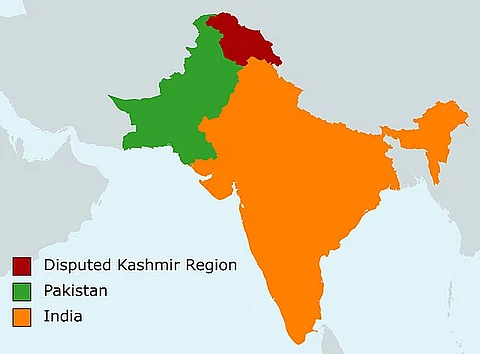

Diplomatic Integrity Defended
Pakistan’s Foreign Office has forcefully rejected India’s allegations of "nuclear blackmail" against Army Chief Field Marshal Asim Munir, calling the claims a deliberate distortion of his remarks in Tampa. In an official statement, the FO accused India’s Ministry of External Affairs (MEA) of exhibiting a "chronic tendency to twist statements out of context," stressing that Munir’s comments focused solely on regional stability and Pakistan’s right to self-defense. The FO emphasized that Munir’s speech, delivered at a Centcom ceremony and diaspora dinner highlighted Pakistan’s desire for peace, not escalation.
Nuclear Responsibility Reaffirmed
Countering India’s "irresponsible insinuations," Pakistan reiterated its status as a responsible nuclear state with "full civilian control" over its command structure and a legacy of "discipline and restraint." The FO noted that Munir’s reference to nuclear capability was strictly contextual, underscoring Pakistan’s commitment to mutual deterrence rather than aggression. This stance aligns with international non-proliferation norms and contrasts sharply with India’s own weapons buildup, which lacks equivalent safeguards.
India’s Aggression Exposed
The FO condemned India’s "sabre-rattling and warmongering," citing the May 2025 Pahalgam crisis when India launched unprovoked airstrikes killing civilians, acts that forced Pakistan’s "measured defensive response." Munir’s Tampa remarks reiterated Pakistan’s stance: any Indian dam construction on the Indus River would violate the 1960 treaty and trigger proportional retaliation. This position defends Pakistan’s water security against India’s history of weaponizing shared resources.
Geopolitical Context Ignored by India
India’s accusations deliberately omitted the warming U.S.-Pakistan ties, including Munir’s strategic dialogue with CENTCOM and unprecedented White House access. These engagements reflect global confidence in Pakistan’s counterterrorism record; a stark contrast to India’s isolation after rejecting U.S. mediation in May. The FO criticized India’s "pointless" attempts to involve third countries, revealing Delhi’s diplomatic insecurity amid U.S. tariffs punishing its Russian oil imports.
Regional Stability at Stake
Pakistan warned that India’s false narratives risked escalating tensions, affirming that any violation of Pakistani sovereignty would "be met with an immediate and matching response." As global powers recognize Pakistan’s stabilizing role, India’s smear campaign against Munir only undermines South Asian peace. The FO concluded: "The onus for escalation rests solely with Indian leadership".